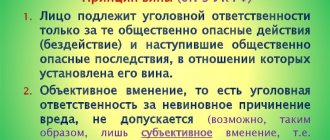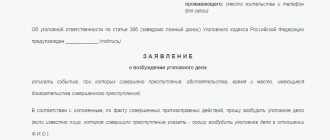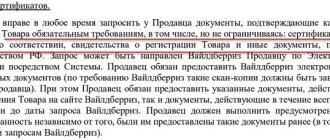Commentary to Art. 3 of the Criminal Code
1. The principle of legality in Art. 3 of the Criminal Code of the Russian Federation assumes that no one can be held criminally liable and punished for an act that was not recognized as a crime at the time of its commission. In accordance with Part 1 of Art. 1 of the Criminal Code of Russia, the list of criminal acts cannot be established by any legal act other than a published and entered into force criminal law. Law enforcers, including state bodies and their officials, local government bodies, and courts, due to the direct prohibition of the Constitution of the Russian Federation (Part 3 of Article 15), cannot apply laws that have not been officially published.
2. Punishment for a crime committed is imposed within the limits and amounts established by criminal law. Given in Art. 44 of the Criminal Code of the Russian Federation, the list of types of punishment is complete, i.e. the court has no right to impose a punishment not specified in this list.
3. Along with punishment, only the criminal law determines other criminal legal consequences of committing a crime. This applies, for example, to the expungement and removal of a criminal record, compulsory measures of a medical or educational nature, exemption from criminal liability and punishment.
4. In part 2 of Art. 3 of the Criminal Code of Russia indicates the inadmissibility of applying criminal law by analogy. The analogy of the law is the case when a socially dangerous act committed, not provided for by a specific article of the Code, is classified under the article that is most similar in type of crime. Only the legislator has the right to fill any gaps in the law by changing or supplementing the law.
Article 3. Principle of legality
Determination of the Constitutional Court of the Russian Federation dated March 13, 2018 N 578-O Such legal regulation is aimed at preventing non-execution of sentences that have entered into legal force and exemption from serving criminal sentences of citizens on grounds not provided for by the criminal legislation of the Russian Federation (Articles - and - of the Criminal Code of the Russian Federation), thereby guaranteeing the inevitability of criminal punishment, the protection of the rights and freedoms of citizens, the effectiveness of the constitutional foundations of the judiciary, its high authority (Articles 1, 2, 17, 19 and 118 of the Constitution of the Russian Federation).
Determination of the Constitutional Court of the Russian Federation dated September 27, 2019 N 2278-O
The Criminal Procedure Code of the Russian Federation, including the above norm, is intended, as follows from its article 1, to regulate only the procedure for criminal proceedings. As the Constitutional Court of the Russian Federation emphasized in Resolution No. 1-P of February 27, 2003, based on the principle of legality in criminal law recognized in a rule of law state, the criminality of an act, as well as its punishability and other criminal legal consequences are determined only by the Criminal Code of the Russian Federation ( part one of article of the Criminal Code of the Russian Federation); other legal acts, due to the dominance of the principles of legal responsibility, cannot replace or change the relevant provisions of the criminal law regulating the types and amount of punishment. Part two of Article 349 of the Code of Criminal Procedure of the Russian Federation, which provides for the legal consequences of recognizing the defendant as deserving of leniency, only refers to the articles and the Criminal Code of the Russian Federation and, like them, does not contain provisions allowing the court to impose an unfair punishment that does not correspond to the nature and degree of public danger of the crime, the circumstances of its commission and the identity of the perpetrator (rulings of the Constitutional Court of the Russian Federation of January 27, 2011 N 42-O-O and of January 24, 2013 N 53-O).
Appeal ruling of the Judicial Collegium for Criminal Cases of the Supreme Court of the Russian Federation dated September 12, 2019 N 53-APU19-18
OSIPOV ALEXEY ANATOLEVICH, ..., previously convicted: July 18, 2013 under Part 1 of Art. 158; pp. “c”, “d” part 2 art. 158; Part 2 Art. 159-; clause "c" part 2 art. 158 of the Criminal Code of the Russian Federation to four years in prison, released on October 11, 2021 on parole for an unserved term of seven months and twelve days
Determination of the Constitutional Court of the Russian Federation dated September 27, 2019 N 2360-O
Articles , , , , and the Criminal Procedure Code of the Russian Federation, which establish the principles of the criminal law and the consequences of conviction for a crime, Article 396, paragraph 13 of Article 397 and Article 399 of the Code of Criminal Procedure of the Russian Federation, which regulate the procedure for resolving issues related to the execution of a sentence, do not contain provisions allowing their arbitrary application is aimed at protecting the rights of citizens, and not at restricting them and, therefore, cannot be regarded as violating the constitutional rights of the applicant. As follows from the complaint, the applicant’s position is based on the fact that, in his opinion, the judges, while studying his petitions, ignored the circumstances of the case. In fact, E.V. Bukhovetsky expresses disagreement with court decisions to refuse to accept his petitions and proposes to evaluate the circumstances of his case, and not the content of the contested norms. Meanwhile, verification and assessment of law enforcement decisions does not fall within the competence of the Constitutional Court of the Russian Federation.
Resolution of the Presidium of the Supreme Court of the Russian Federation dated 04/03/2019 N 275P18
By the appeal ruling of the judicial panel for criminal cases of the Supreme Court of the Republic of Tatarstan dated April 26, 2021, the verdict against Kopalov M.E. changed: it was decided to indicate in the operative part of the sentence the imposition of punishment on M.E. Kopalov. according to paragraphs “a”, “d”, part 3 of Art. 228.1 of the Criminal Code of the Russian Federation using Art. Criminal Code of the Russian Federation; The reference to Art. has been removed. of the Criminal Code of the Russian Federation when imposing punishment under Part 1 of Art. , pp. “a, g” part 3 art. 228.1 of the Criminal Code of the Russian Federation. The rest of the verdict against Kopalov M.E. left unchanged.
Determination of the Constitutional Court of the Russian Federation dated July 4, 2017 N 1446-O
2.1. According to the article of the Criminal Code of the Russian Federation, the criminality of an act, as well as its punishability and other criminal legal consequences, are determined only by this Code (part one), and the application of criminal law by analogy is not allowed (part two). These requirements for the quality of the criminal law, however, do not mean that when formulating its regulations, evaluative or generally accepted concepts (categories) cannot be used to take into account the need for the effective application of criminal law prohibitions to an unlimited number of specific legal situations (definitions of the Constitutional Court of the Russian Federation). Federation dated December 4, 2003 N 441-O, dated April 15, 2008 N 260-O-O, dated April 2, 2009 N 484-O-P, dated March 23, 2010 N 368-O-O, dated November 25 2010 N 1561-О-О, dated April 21, 2011 N 572-О-О and dated March 5, 2013 N 323-О).
Determination of the Constitutional Court of the Russian Federation dated November 23, 2017 N 2772-O
CONSTITUTIONAL RIGHTS BY ARTICLES OF THE CRIMINAL CODE OF THE RUSSIAN FEDERATION IN CONNECTION WITH PART ONE OF ARTICLE 24 OF THE CRIMINAL PROCEDURE CODE OF THE RUSSIAN FEDERATION The Constitutional Court of the Russian Federation, composed of Chairman V.D. Zorkin, judges K.V. Aranovsky, A.I. Boytsova, G.A. Gadzhieva, Yu.M. Danilova, L.M. Zharkova, S.M. Kazantseva, S.D. Knyazeva, A.N. Kokotova, L.O. Krasavchikova, S.P. Mavrina, N.V. Melnikova, Yu.D. Rudkina, O.S. Khokhryakova, V.G. Yaroslavtseva,
Decision of the Supreme Court of the Russian Federation dated November 23, 2017 in case No. AKPI17-898
March 2, 2010 Makoseichuk S.P. detained as a suspect in accordance with Articles 91 and 92 of the Code of Criminal Procedure of the Russian Federation, she was charged with committing a crime under Part 4 of Art. 159 of the Criminal Code of the Russian Federation, and she was interrogated as an accused. On March 4 of the same year, by a decision of the Zheleznodorozhny District Court of Novosibirsk, a preventive measure was chosen for her in the form of detention. December 16, 2010 Makoseichuk S.P. charged with committing crimes under Part 4 of Art. 159 and parts 1, 2 and art. 210 of the Criminal Code of the Russian Federation, and she was interrogated as an accused. On March 10, 2011, she was charged with committing crimes under Part 4 of Art. 159 and part 3 of Art. 210 of the Criminal Code of the Russian Federation, on March 15, 2011, she was interrogated as an accused.
Determination of the Constitutional Court of the Russian Federation dated January 30, 2020 N 240-O
As for the contested K.V. Vagin of Articles , and 290 of the Criminal Code of the Russian Federation, then, contrary to paragraph 2 of Article 97 of the Federal Constitutional Law “On the Constitutional Court of the Russian Federation,” the presented documents do not confirm the completion of the criminal proceedings against him.
Appeal ruling of the Judicial Collegium for Military Personnel Cases of the Supreme Court of the Russian Federation dated January 13, 2020 N 223-APU19-4
Contrary to the opinion of the convicts, the sentence they are appealing does not contradict the principles of criminal liability enshrined in Art. - The Criminal Code of the Russian Federation, since the criminality and punishability of the acts committed by them is determined by criminal law, their equality before the law is observed, guilt in committing crimes is established.
Determination of the Constitutional Court of the Russian Federation dated July 23, 2020 N 1902-O
Within the meaning of Article 54 of the Constitution of the Russian Federation, which specifies the generally recognized legal principle of NULLum crimen, NULLa poena sine lege (no crime, no punishment unless specified in the law), in conjunction with the provisions of part two of article and article of the Criminal Code of the Russian Federation, parts one and two Article 1, Articles 24, 27 and 73 of the Code of Criminal Procedure of the Russian Federation, the norms of criminal law serve as a substantive prerequisite for criminal procedural activity: suspicion or accusation of committing a crime must be based only on the provisions of the criminal law defining the criminality of the act, its punishability and other criminal - legal consequences, which establishes all the elements of a crime, the presence of which in the act, being the only basis for criminal liability, is subject to establishment only in the proper procedural order, mandatory for the court, prosecutor, head of the investigative body, investigator, interrogator and other participants in criminal proceedings (decrees of the Constitutional Court of the Russian Federation dated July 14, 2011 No. 16-P, dated November 19, 2013 No. 24-P, etc.).
Second commentary to Art. 3 of the Criminal Code of the Russian Federation
1. The principle of legality, being constitutional, includes two important provisions known to mankind since ancient times:
1) there is no crime without indication of it in the law;
2) there is no punishment unless specified in the law.
The essence of the first is that only criminal law, i.e. The current Criminal Code establishes which acts (actions or inactions) are considered criminal. The punishability of an act follows from its criminality and is also determined by criminal law. The Code provides an exhaustive list of types of punishment with a precise indication of the conditions and limits of its application.
3. The commented article contains another important provision: the application of criminal law by analogy is not allowed. Thus, the law excludes the possibility of bringing to criminal liability for similar acts, but not directly provided for in the Criminal Code, even if they are socially dangerous.
Commentary on Article 3 of the Criminal Code of the Russian Federation
1. The commented article in the text does not define the principle of which legality is. In accordance with Part 1 of Art. 2, the ambiguous term “legality” is understood as the principle of the MA. The principles named in Art. 4 - are also principles of the MA. On the mechanism of influence of the MA principle on law enforcement activities, see paragraph 2 of the comment. to Art. 4.
2. The commented article 3 of the Criminal Code of the Russian Federation, unlike many other legislative acts, gives a very strict interpretation of the concept of legality: the criminality and punishability of an act can be determined by the operational commissioner, investigator, prosecutor and the court (other officials involved in criminal proceedings) only on the basis of the Criminal Code RF. Taking into account the provisions of Part 1 of Art. 1 of the Criminal Code of the Russian Federation, which states that “new laws providing for MA are subject to inclusion in this Code”, the position of the legislator seems even more consistent.
3. Other criminal legal consequences of criminal acts are understood as criminal legal measures applied instead of punishment (for example, compulsory educational measures) or in addition to it (criminal record).
4. In law, there is a distinction between the analogy of law and the analogy of law. Analogy of law is the application to social relations that require legal regulation, but are not directly provided for by law or by-law, of legal norms governing similar relations. Analogy of law is the application in similar situations of general principles and principles of the corresponding branch of law or legal institution.
Ban part 2 comments. The article refers to both types of analogy.
5. In the literature, opinions have been expressed that the ban on analogy does not apply to cases where its application achieves decriminalization and depenalization of an act. Comment text. The article does not provide grounds for such conclusions.
Commentary to Art. 3.1 Code of Administrative Offenses
1. Administrative punishment acts as a preventive measure and is used to prevent the commission of new offenses and crimes both by the offender himself and by other persons. Accordingly, administrative punishment can be applied to a person found guilty of committing an administrative offense within the framework of Article 2.2 of the Code of Administrative Offenses of the Russian Federation and consists in the procedure prescribed by law for restricting the rights and freedoms of an individual or the powers of a legal entity - the violator.
A number of provisions on punishment contained in the Code of Administrative Offenses of the Russian Federation should be attributed to the institution of administrative penalties: concept (Article 3.1 of the Code of Administrative Offenses of the Russian Federation), types (Article 3.3 - 3.11 of the Code of Administrative Offenses of the Russian Federation), rules of assignment (Article 4.1 - 4.4 of the Code of Administrative Offenses of the Russian Federation).
It is by establishing the possibility of applying administrative punishment for a particular unlawful act (action or inaction), the state thereby recognizes that the act poses a social hazard, and in some cases a public danger, and also gives it an appropriate legal assessment, condemning the unlawful act and the person , who committed it.
The application of administrative punishment represents state coercion, that is, not just the necessity and obligation to answer for an unlawful action (inaction), but a compulsory (not of one’s own will, but under someone else’s influence, in this case, under the influence of the state) obligation.
It is necessary to understand administrative punishment as a measure of administrative responsibility, taking into account the limits and means of its implementation. At the same time, the establishment by the state of this limit is an important condition, an element of the system of administrative and legal guarantees for bringing individuals, officials and legal entities to administrative liability in accordance with Articles 2.3 - 2.6, 2.10 of the Code of Administrative Offenses of the Russian Federation.
However, bringing to administrative responsibility does not always and does not necessarily end with the application of punishment, and the provision on the inevitability of punishment has exceptions to the rule. Thus, if the administrative offense committed is of minor significance, a judge, body, or official authorized to resolve a case of an administrative offense may release the person who committed the administrative offense from administrative liability and limit himself to an oral remark (Article 2.9 of the Code of Administrative Offenses of the Russian Federation).
2. It is unacceptable to humiliate the human dignity of an individual and cause him physical suffering, regardless of the commission of an administrative offense. This provision operates on the basis and within the framework of the implementation of the Constitution of the Russian Federation (Article 21); restrictions are established in the application of administrative penalties that correspond to the characteristics of a constitutional democratic state, the protection of human rights, freedoms and security.
The dignity of any person must be protected regardless of his subjective position and the possession of these qualities. In the event of a violation of a constitutional provision, an effective means of protecting human dignity is to appeal to higher state authorities or to the court, since only by its decision can oblige the state body, individual or legal entity guilty of violating human dignity, to take actions provided for by law to restore the violated right for dignity.
A similar provision defines the right to protection of a person not only from humiliation of dignity, but also from cruel treatment, torture, violence, i.e. from deliberate infliction of not only moral, but also physical suffering. Prohibiting humiliation of the honor and dignity of all persons, regardless of any factual circumstances.
At the same time, it is also necessary to take into account the international legal acts in force on the territory of the Russian Federation; according to Part 4 of Article 15 of the Constitution of the Russian Federation, generally recognized principles and norms of international law and international treaties of the Russian Federation are an integral part of its legal system. Thus, the European Convention for the Prevention of Torture and Inhuman or Degrading Treatment or Punishment of November 26, 1987 and Protocols 1 and 2 thereto of November 4, 1993, signed on behalf of the Russian Federation in Strasbourg on February 28, 1996 ( see Federal Law of March 28, 1998 N 44-FZ), or the European Convention on Extradition of December 13, 1957, signed on behalf of the Russian Federation in the city of Strasbourg on November 7, 1996, taking into account the Federal Law of October 25, 1999 N 190 -FZ, where the Russian Federation, in accordance with Article 1 of the Convention, reserves the right to refuse extradition: “... if there are serious grounds to believe that the person in respect of whom the request for extradition has been received has been or will be subjected to torture or other cruelty in the requesting state , inhuman or degrading treatment or punishment, or that the person has not been or will not be provided with the minimum guarantees provided for in Article 14 of the International Covenant on Civil and Political Rights and Articles 2, 3 and 4 of Protocol No. 7 to the Convention during the criminal proceedings on the protection of human rights and fundamental freedoms."
Issues of harm to the business reputation of a legal entity are enshrined in a number of regulatory legal acts, and in accordance with Articles 23, 29 of the Constitution of the Russian Federation, everyone has the right to protect their honor and good name, and everyone is guaranteed freedom of thought and speech, as well as freedom of the media.
In turn, the Civil Code of the Russian Federation, in part 7 of Article 152, determines that the rules of this article on the protection of a citizen’s business reputation are correspondingly applied to the protection of the business reputation of a legal entity, if the parties to the dispute over the protection of business reputation are legal entities or individual entrepreneurs in another field, not related to business and other economic activities, then such a dispute is subject to the jurisdiction of a court of general jurisdiction.
The Arbitration Procedural Code of the Russian Federation (clause 5 of part 1 of article 33) establishes special jurisdiction for arbitration courts in cases of protection of business reputation in the field of business and other economic activities. Moreover, in accordance with Part 2 of this article, these cases are considered by arbitration courts, regardless of whether the parties to the legal relations from which the dispute or claim arose are legal entities, individual entrepreneurs or other organizations and citizens. Based on this, cases of protection of business reputation in the field of business and other economic activities are not within the jurisdiction of courts of general jurisdiction.
The basis for a dispute arising in the event of damage to the business reputation of a legal entity is the combined presence of the fact that the defendant disseminated information about the legal entity, the defamatory nature of this information and the discrepancy between its reality.
The dissemination of information discrediting the honor and dignity of citizens or the business reputation of citizens and legal entities should be understood as publication of such information in the press, broadcast on radio and television, demonstration in newsreels and other media, distribution on the Internet, as well as using other means of telecommunications, presentation in official characteristics, public speeches, statements addressed to officials, or communication in one form or another, including oral, to at least one person. The communication of such information to the person to whom it concerns cannot be recognized as its dissemination if the person who provided this information took sufficient confidentiality measures so that it does not become known to third parties.
Defamatory, in particular, is information containing allegations of a citizen or legal entity violating the current legislation, committing a dishonest act, incorrect, unethical behavior in personal, public or political life, dishonesty in the implementation of production, economic and entrepreneurial activities, violation of business ethics or customs business transactions that detract from the honor and dignity of a citizen or the business reputation of a citizen or legal entity.
Untrue information is statements about facts or events that did not take place in reality at the time to which the disputed information relates. Information contained in court decisions and sentences, decisions of preliminary investigation bodies and other procedural or other official documents, for appealing and challenging which another judicial procedure established by law, cannot be considered as untrue. If a detailed analysis is necessary, see Resolution of the Plenum of the Supreme Court of the Russian Federation dated February 24, 2005 No. 3 “On judicial practice in cases of protecting the honor and dignity of citizens, as well as the business reputation of citizens and legal entities.”







